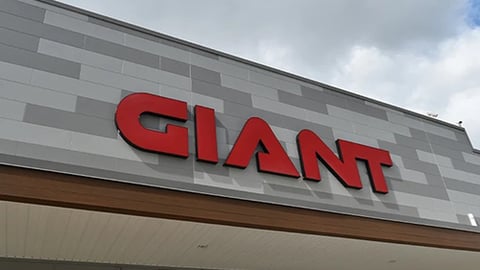Hannaford Now Sending No Food Waste to Landfills
Hannaford Supermarkets has revealed that each of its 183 stores donates or diverts all food at risk of going to waste, sending no food at all to landfills. This accomplishment, attained after a decade-long effort, makes Hannaford the first large-scale grocery retailer across its New England and New York market area to meet such a goal.
Hannaford succeeded through a multipronged approach focused on first preventing food waste via strategic product ordering and management at store level. Hannaford associates learn how to responsibly handle food to avoid damage and exposure to temperature variation. Each store also strictly follows the U.S. Environmental Protection Agency Food Recovery Hierarchy, which prioritizes the rescue of surplus product for donation to food-insecure people, leading to millions of meals donated annually. Other key aspects of the grocer’s food waste diversion program include donations to local farmers for animal feed and food-to-energy conversion efforts.
Hannaford’s program diverted 65 million pounds of food waste from landfills last year.
“The health and well-being of our planet are a top priority for all of us at Hannaford, and we recognize that our role in the food supply chain comes with great responsibility,” said Mike Vail, president of Scarborough, Maine-based Hannaford Supermarkets. “The impact food waste has on our environment cannot be overstated. When we first established this goal, it was with the greater purpose of making a real and positive impact on our communities. Eliminating hunger and food waste are essential to improving the world we live in.”
The retailer was able to reach its zero-food-waste goal by teaming with Agri-Cycle, a food waste recycling company also based in Scarborough, to convert food unsuitable for human and animal consumption into energy. Agri-Cycle’s operation features a state-of-the-art de-packaging machine that separates expired or damaged packaged food from its container, enabling easy recycling of food waste that would otherwise end up in a landfill because of its packaging.
Agri-Cycle picks up inedible food from Hannaford stores, and their anerobic digester, located at sister company Stonyvale Farms, changes it into electricity that’s sold back onto the grid. As well as energy, a byproduct of the process produces liquid fertilizer, in addition to bedding for the farm’s dairy cows, resulting in a virtuous cycle.
“Hannaford is a true sustainability champion with a deep understanding of the challenges regarding food waste recycling,” observed Agri-Cycle President and co-founder Dan Bell. “Solutions are never one-process fits all. By taking a multifaceted approach, Hannaford ensures they are navigating the food waste hierarchy with intent, maximizing the value of their unsold food by helping to create renewable energy while protecting the environment.”
The collaboration with Hannaford has allowed Agri-Cycle to expand its area of operation and make the process more accessible to other companies and organizations in the Northeast.
“Hannaford’s role as a frontrunner in achieving this milestone has allowed Agri-Cycle to gain efficiency of scale and provide food waste recycling services to many other businesses in towns and cities across New England,” affirmed Bell. “Hannaford has had a significant impact not only at their stores, but on hundreds of other food waste producers throughout the region.”
Further, as a Feeding America partner, Hannaford donates food to a network of community pantries, soup kitchens and food banks, and the grocer gives food not suitable for human consumption to local livestock farmers, who use it as feed for cows, sheep, pigs and other animals.
“I congratulate Hannaford for this remarkable accomplishment and for their leadership,” said Maine Gov. Janet Mills. “Their innovative approach to achieving zero food waste, in partnership with local companies, helps feed hungry Maine people, generates renewable energy, and protects our environment. It is a blueprint for how Maine can reduce food waste in a sustainable, beneficial way.”
According to the Environmental Protection Agency, up to 40% of all food in the United States is wasted on its way from farm to table, eventually ending up in landfills and generating harmful greenhouse gases. The U.S. Department of Agriculture has found that the U.S. per capita waste has grown by 50 percent since 1974, and that the average person discards 250 pounds of food annually.
A sister Ahold Delhaize USA banner of Hannaford, the Giant Co. revealed last August that more than 84% of all waste generated in the Carlisle, Pennsylvania-based company is diverted through its recycling efforts, with an aim of diverting 90% of waste by 2025. These moves are consistent with retail conglomerate Ahold Delhaize’s goal of eliminating waste.
Hannaford operates 184 stores in five Northeast states, employing more than 26,000 associates. Parent company Ahold Delhaize USA, a division of Zaandam, Netherlands-based Ahold Delhaize, is No. 11 on The PG 100, Progressive Grocer’s 2020 list of the top food and consumables retailers in North America.











